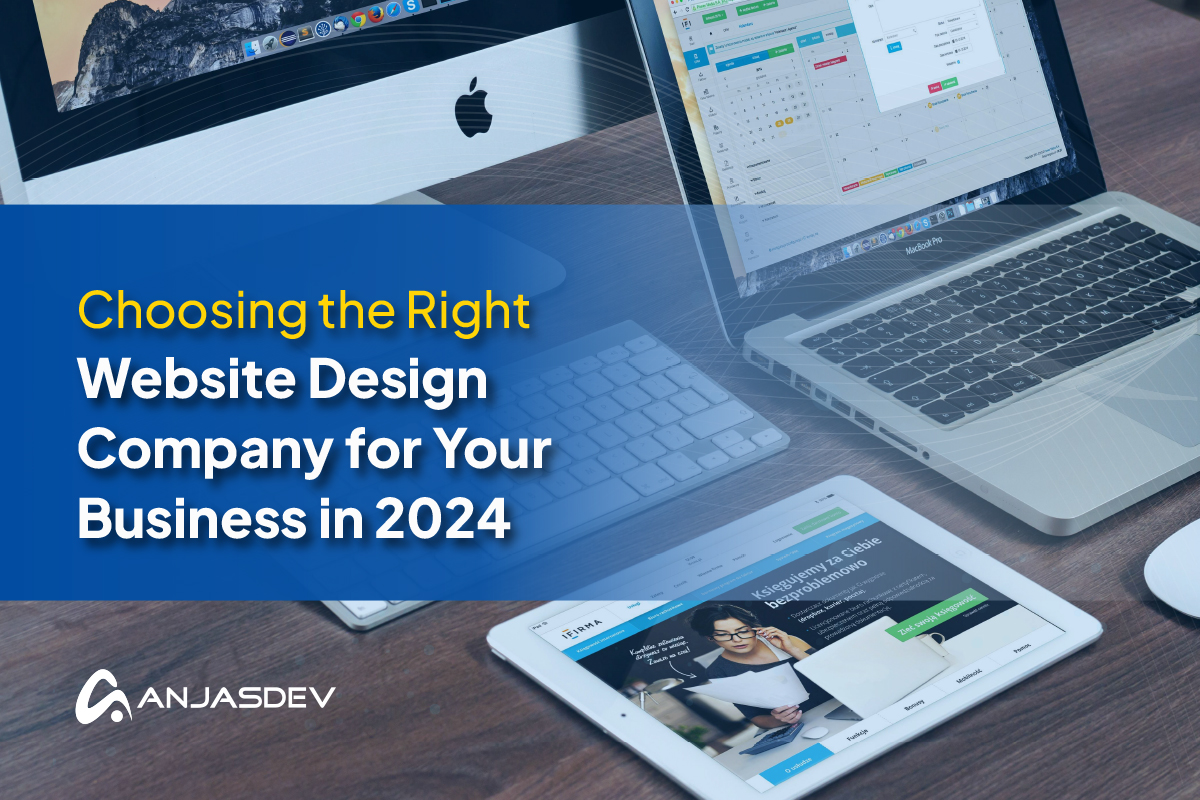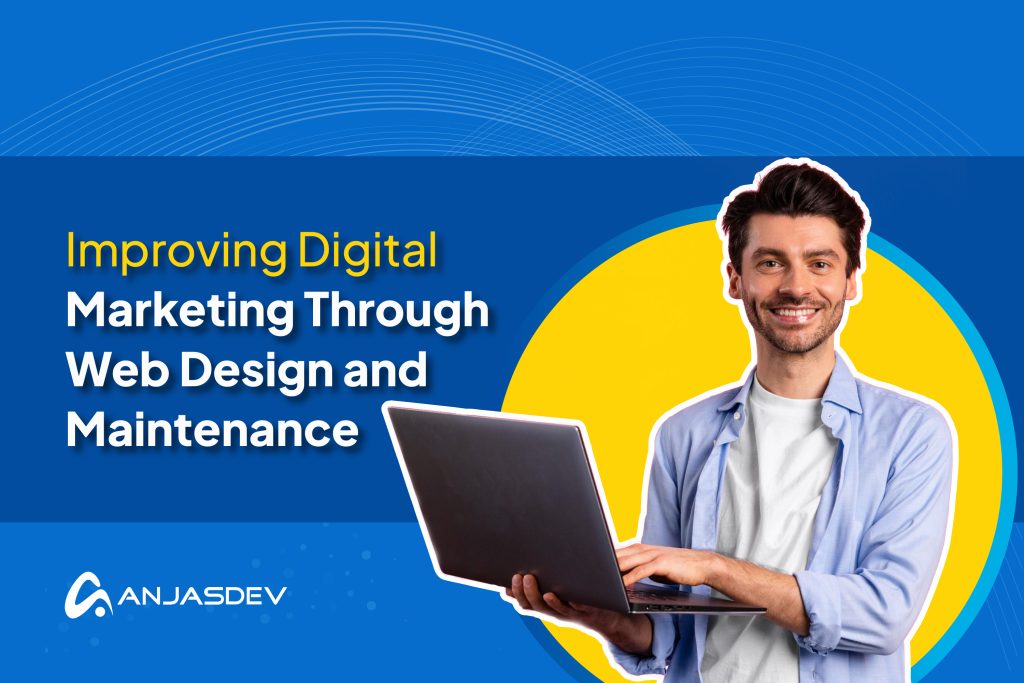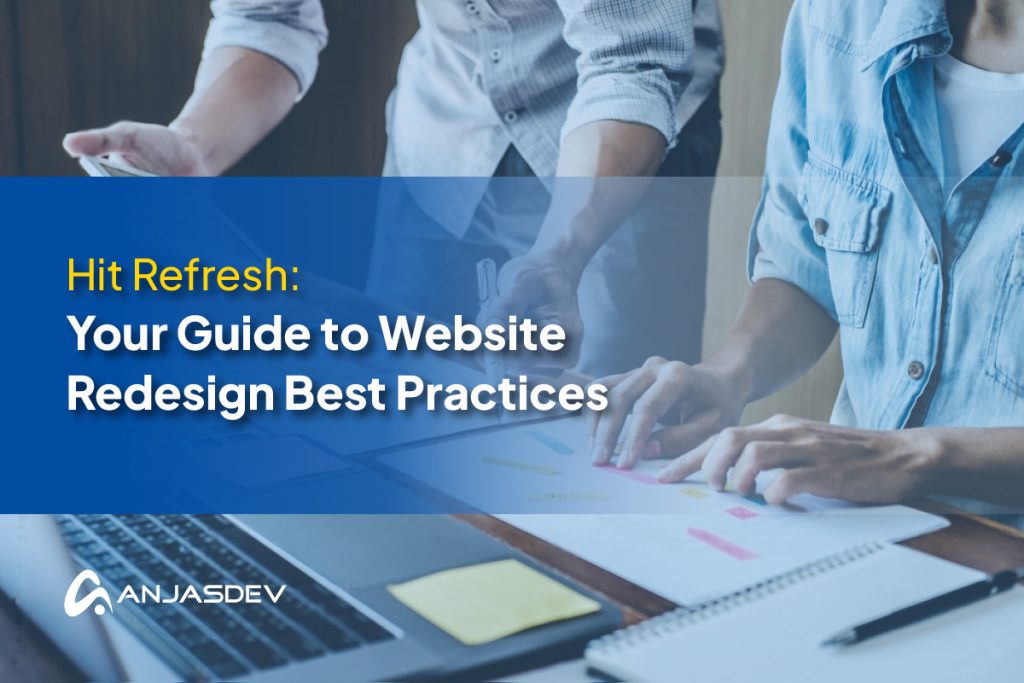If you’re eager to elevate your business, a responsive, high-quality website is a must. It’s not just about ranking high on search engines and boosting your ROI. A well-designed website in 2024 can be a game-changer, attracting more customers, enhancing your brand’s credibility, and ultimately, increasing your profits. So, let’s delve into why website design matters and how to find the perfect website designer for your unique business needs.
Why Website Design Matters
Search Engine Optimization (SEO)
Websites need to ensure that their visibility on search engines is at the top of their priority list. With 92.96% of all web traffic coming from clickthroughs on Google Search, making sure that your website ranks highly is a necessity.
Optimizing your website for search engines is a key strategy to ensure high rankings. This is where a company specializing in SEO and web design services can help. They create SEO-friendly code and stay updated with relevant keywords, making it easier for potential customers to find you.
Not only that, but it’s also important to make sure your site loads quickly. It is compatible with mobile devices, with responsive web design services that not only mean customers stay to see what you are about but also positively affect your Google Search rating.
User Experience (UX) – link to Google standards again
A boring and bland website just won’t cut it in this day and age. Today’s websites are designed with the user in mind, ensuring intuitive navigation based on optimizing user intent, displaying a cohesive brand identity through images and text, and improving engagement through interactive elements.
Websites that prioritize user experience are more likely to engage users and keep them on the site for longer. With Google considering engagement and bounceback rates in its quality guidelines, this is a balance you want to get right.
Brand Visibility and Credibility – and again, Google standards
Creating an image as a trustworthy and reputable business is paramount, and one of the first ways you make this first impression on potential customers is through your web design and branding.
Google’s quality guidelines focus on E-E-A-T, which stands for Experience, Expertise, Authority, and Trust. Make sure you meet these guidelines through consistent and transparent messaging and design, as well as a website that mirrors your professionalism as a business. This will help build user trust in your brand, ultimately leading to a higher conversion rate.
Evaluating Website Designers
It is important to make sure that you choose the best web design agency that aligns with your needs as a business and your working style. Here are some key things to look out for when it comes to choosing a website design company.
Portfolio and Experience
The first thing you will want to check for when looking for a web design company is their reputation. Take a look at their sample portfolio and client testimonials on both their website and their Google Business listing.
You can also check whether they have experience working with industries and companies like your own, meaning that they have valid experience and knowledge in your sector with proven results.
Also, check their example portfolio to see how they have evolved, as this will demonstrate that they are making sure to continually build on their knowledge and skills and keep up to date with best practices. Their own website is also a good indicator of whether they have the right skills. The website that they have built for themselves should reflect what they can provide to you.
Design Process and Communication
Working with a website designer should be a collaborative process. It’s not just about paying for a service; it’s about building a relationship. A good website designer will not only create a website for you but also ensure that your evolving needs and issues are addressed along the way. This open communication is key to a successful website design project.
Your web design and development company should also have a good grasp of your requirements and about you as a business. If they are not asking lots of questions at the beginning or in consultations to find out as much as they can about you, what you do, and what you want out of the project, then they are most likely not a business that cares too much about the end product that they give you.
Technical Proficiency
The web design company you choose should really know its stuff. Make sure that they demonstrate proficiency in the most common coding languages and frameworks for website design: HTML5, JavaScript, CSS, and Python.
They should also understand all current guidelines surrounding website quality and creation, including the Google Quality Rater Guidelines and E-E-A-T framework, and be able to ensure that your new website conforms to these to the highest standard to increase your search visibility and provide real ROI.
If you are adding an e-commerce element to your website or you need to integrate certain programs or third-party platforms, you’ll need to make sure this is something that your website designer can do. Look for a company that excels in e-commerce web design services, including various specialisms, like Shopify website design.
Project Management and Workflow
Your business’s online presence hinges on your website, so it is paramount that key milestones are met on time and that the final product is delivered. Check reviews for the prospective web design company to see whether they can adhere to important deadlines and maintain a good level of communication and opportunities for feedback throughout.
For general upkeep of your site, enquire about post-launch and maintenance services, as well as a transparent pricing scheme for updates and edits as required.
AnjasDev is a trusted website design agency. We stay on top of our game and provide the highest quality products and services tailored to your needs. Contact us for a consultation today to see how we can take your website to the next level.
Working with the Right Designer
Once you have chosen a website designer to work with on your project, here are some key considerations and tips to guide you through the website creation process.
Define Your Project Goals and Requirements
When you start to work with your chosen website designer, you’ll want to make sure you have all of your details and requirements ready to present to them. A key list of essential information includes:
- The purpose of the website (e.g., e-commerce, portfolio, informational).
- Your target audience. You could also create a persona to highlight to the designer what type of person you are looking to attract and why they may want to visit your website.
- Desired features and functionality, including any third-party integration.
- Your brand guidelines and design preferences, including colors, any essential fonts, and images.
Budget Considerations
It is important to always keep your budget in mind. Make sure that your website designer is aware of this at the start of discussions so that they can be candid about what can be achieved within your budget and that there is less potential for overspending.
You may also ask for itemized bills at different stages during the design process so that you can check for any hidden costs or services not originally included in the discussions.
When budgeting for your project, also remember to consider the long-term costs. Once the website has been delivered and launched, you’ll need to make sure you know how much you will need to spend on things like maintenance, updates, and hosting services.
Contractual Agreements and Intellectual Property Rights
When working with a website designer, it’s crucial to establish clear contractual agreements that outline the scope of work, timeline, and compensation. You should also set in place any NDAs you want the designers to work under, especially where sensitive information is involved.
Additionally, it’s important to address intellectual property rights, ensuring you maintain ownership or licensing of all content, designs, and code developed for your website.
Cultural Fit and Communication Style
Aligning work philosophies and values with your website designer is key to a successful partnership. Discuss preferred communication channels and responsiveness expectations and establish collaborative feedback loops. Ensure a shared understanding of project goals and timelines to foster an efficient and enjoyable working relationship.
Post-Launch Considerations
After your website has gone live, there are still some factors that you should consider planning out with your website designer.
Website Maintenance and Updates
Post-launch, ongoing website maintenance is crucial. This includes regularly updating your content management system (CMS), applying security patches and bug fixes, and continuously optimizing for SEO and tracking website analytics.
Proactive maintenance ensures your website remains secure, up-to-date, and performs optimally for your users, so maintaining a good relationship with your website designer is paramount.
Scalability and Future Growth
As you continue to grow, you’ll want a website designer who is there with you on your journey and understands where you want to go.
You should plan for business expansion and any new features that weren’t able to be included in the initial development process, as well as check in with your design company to see if there are any new technologies and platforms that can help increase your business reach.
Ongoing Support and Training
Especially if you are less tech-savvy, enquiring with your website design agency about whether they offer training and documentation for content management and making updates to the website can be a lifesaver. One way to do this is to look for a WordPress web design agency, as the platform works well for intuitive content management and upkeep post-development.
You should also check what their support system is like, including availability, response times, and costings, just in case anything goes wrong that cannot be fixed on your end.
All in all, your business’s website should not be left as an afterthought, especially as it is key to driving new business, even on a local level. Therefore, you need to make sure that you create a partnership with a website designer who really understands your aims and can help you build a long-term strategy for success.
Start a conversation with AnjasDev today. Our custom web design services have you in mind, from affordable websites for small businesses to larger projects designed to have a huge online impact.



